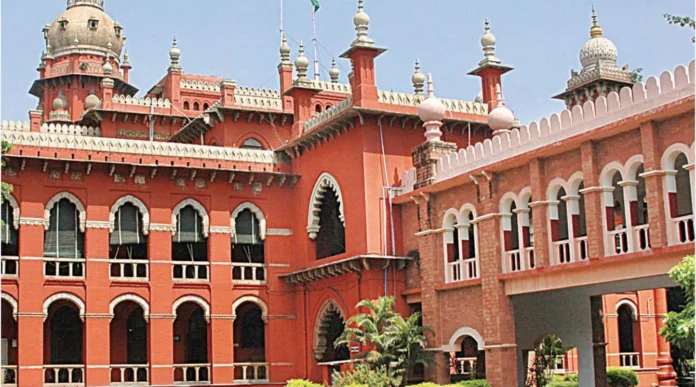By Dr Swati Jindal Garg
A division bench of the Madras High Court has reaffirmed that while same-sex marriage is yet to be legally recognized in India, LGBTQIA+ individuals have an unassailable right to form families of their choosing. The judgment came while ordering the release of a 25-year-old lesbian woman who had been forcibly detained by her natal family and subjected to coercive abuse.
Justices GR Swaminathan and V Lakshminarayanan, while allowing a habeas corpus petition filed by the woman’s partner, delivered a powerfully empathetic verdict.
It emphasized that “marriage is not the sole mode to found a family” and recognised the growing constitutional validity of the “chosen family” model in LGBTQIA+ jurisprudence.
Citing the late Justice Leila Seth’s unconditional acceptance of her gay son, the bench noted the harsh contrast in this case, observing: “The mother of the detenue is no Leila Seth. We understand her desire for her daughter to live a conventional heterosexual life… However, as an adult, the detenue is entitled to choose her own path.”
Going a step further, the Court questioned the continued use of the term “queer”—pointing out its dictionary definition as “strange” or “odd” and stating, “There is nothing strange about such inclinations. Why then should they be labelled queer?”
The detenue had been forced to return to her family by local police, where she
was reportedly subjected to physical abuse and “corrective rituals”. Her mother alleged drug use and manipulation. But during an in-camera interaction, the Court found the detenue lucid, rational and unequivocal in her desire to live with the petitioner.
Deeming the police’s handling of the case as “rank inaction,” the Court censured the authorities and underlined their duty to act sensitively in LGBTQIA+ matters. It invoked the Yogyakarta Principles—an international human rights framework protecting individuals regardless of sexual orientation or gender identity—to reinforce the detainee’s right to liberty, privacy and freedom from abuse.
In a poignant gesture, Justice Swaminathan personally gave Rs 1,000 from his pocket towards the couple’s conveyance expenses. The Court directed the police to provide ongoing protection to the couple and restrained the family from interfering with the detainee’s liberty.
In doing so, the bench echoed the sentiments of the Supreme Court in Navtej Singh Johar vs Union of India, which decriminalised homosexuality, and also referenced the 2023 marriage equality judgment in Supriyo @ Supriya Chakraborty vs Union of India—highlighting that even in the absence of legal recognition for same-sex marriages, familial bonds are valid and protected.
The bench concluded with a moving declaration: “Same-sex couples can very well form a family. The concept of ‘chosen family’ is now well settled and acknowledged in LGBTQIA+ jurisprudence.” Also commended was Justice N Anand Venkatesh’s ongoing work in affirming LGBTQIA+ rights, particularly his recognition of “familial association deeds” for same-sex partners.
Ultimately, the Madras High Court’s verdict is a powerful reminder that constitutional morality must triumph over social orthodoxy. As Article 21 of the Constitution guarantees the right to life with dignity, this judgment pushes the nation one step closer to embracing the full humanity of its LGBTQIA+ citizens.
—The author is an Advocate-on-Record practising in the Supreme Court, Delhi High Court and all district courts and tribunals in Delhi


